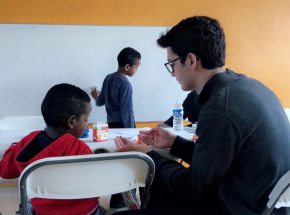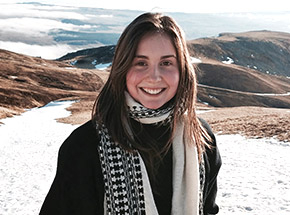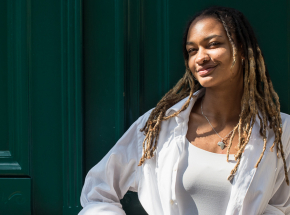- About AUP
- History of AUP
- Mission & Core Values
- Vision and Leadership
- AUP Recognition
- Alumni Success
- Campus Development
- Arts at AUP
- Policies & Guidelines
- Academics
- Undergraduate
- Graduate Programs
- MA in Diplomacy and International Law
- MA in Global Communications
- MSc in Human Rights and Data Science
- MA in International Affairs
- MA in International Affairs, Conflict Resolution, and Civil Society Development
- MSc in International Management
- MSc in Strategic Brand Management
- Find Your Thesis Advisor
- Previous Programs
- Cultural Program
- Faculty
- Summer School
- Research Centers
- The Center for Critical Democracy Studies
- Upcoming Events
- Research Projects
- Fellows’ Publications
- Publishing
- Curriculum
- Community
- Partnerships
- Visiting Scholars
- CCDS Highlights
- Atelier de Théorie Politique – Paris
- Critical Theory 101: Future Directions and New Challenges
- Martti Koskenniemi on “The Law of International Society: A Road not Taken”
- Academic Freedom Symposium
- Tocqueville Colloque 2023
- Violent Turns Conference
- Degenerations of Democracy
- DEMOS21 Inaugural Event
- What Demos for the 21st Century?
- The Paris Centennial Conference
- Justice Stephen Breyer
- Civic Jazz - The Launch of the Center
- Past Events
- FR
- The Center for Writers and Translators
- The George and Irina Schaeffer Center for the Study of Genocide, Human Rights and Conflict Prevention
- The Joy and Edward Frieman Environmental Science Center
- The Center for Media, Communication & Global Change
- The Center for Critical Democracy Studies
- Departments
- Academic Resources
- Academic Affairs
- Academic Calendar
- Academic Resource Center
- Library
- Registrar's Office
- Teaching and Learning Center
- Accessibility & Accommodation Services
- AI@AUP: A Campus-Level Initiative
- Quai D'Orsay Learning Commons
- Paris as Classroom
- ACE
- Admissions
- Student Life
- Campus
- Student Leadership & Involvement
- Paris
- Support Services
- Student Life Help Desk
- Student Accounting Services
- Student Immigration Services
- Student Grievance Procedure
- Diversity and Inclusion
- Health & Well-being
- Digital Student Handbook
- News
- Events
- AUP Giving
- Housing Offer for 2025-2026
- IT Services
- Alumni
- About AUP
- History of AUP
- Mission & Core Values
- Vision and Leadership
- AUP Recognition
- Alumni Success
- Campus Development
- Arts at AUP
- Policies & Guidelines
- Academics
- Undergraduate
- Graduate Programs
- MA in Diplomacy and International Law
- MA in Global Communications
- MSc in Human Rights and Data Science
- MA in International Affairs
- MA in International Affairs, Conflict Resolution, and Civil Society Development
- MSc in International Management
- MSc in Strategic Brand Management
- Find Your Thesis Advisor
- Previous Programs
- Cultural Program
- Faculty
- Summer School
- Research Centers
- The Center for Critical Democracy Studies
- Upcoming Events
- Research Projects
- Fellows’ Publications
- Publishing
- Curriculum
- Community
- Partnerships
- Visiting Scholars
- CCDS Highlights
- Atelier de Théorie Politique – Paris
- Critical Theory 101: Future Directions and New Challenges
- Martti Koskenniemi on “The Law of International Society: A Road not Taken”
- Academic Freedom Symposium
- Tocqueville Colloque 2023
- Violent Turns Conference
- Degenerations of Democracy
- DEMOS21 Inaugural Event
- What Demos for the 21st Century?
- The Paris Centennial Conference
- Justice Stephen Breyer
- Civic Jazz - The Launch of the Center
- Past Events
- FR
- The Center for Writers and Translators
- The George and Irina Schaeffer Center for the Study of Genocide, Human Rights and Conflict Prevention
- The Joy and Edward Frieman Environmental Science Center
- The Center for Media, Communication & Global Change
- The Center for Critical Democracy Studies
- Departments
- Academic Resources
- Academic Affairs
- Academic Calendar
- Academic Resource Center
- Library
- Registrar's Office
- Teaching and Learning Center
- Accessibility & Accommodation Services
- AI@AUP: A Campus-Level Initiative
- Quai D'Orsay Learning Commons
- Paris as Classroom
- ACE
- Admissions
- Student Life
- Campus
- Student Leadership & Involvement
- Paris
- Support Services
- Student Life Help Desk
- Student Accounting Services
- Student Immigration Services
- Student Grievance Procedure
- Diversity and Inclusion
- Health & Well-being
- Digital Student Handbook
- News
- Events
- AUP Giving
- Housing Offer for 2025-2026
- IT Services
- Alumni
Paris as Classroom
Paris as Classroom
Terror Trials
Law Students Experience Courts First Hand
History happens in Paris. Wherever possible, AUP professors encourage students to engage with the city around them by applying their studies to situations of real-world significance. As an example, Professor Sharon Weill of the Department of History and Politics recently took students in her law classes to attend a series of prominent terrorism trials. “The scene in the courtroom is like an orchestra,” explains Professor Weill, who also runs AUP’s Justice Lab. “You have different actors performing justice – but it is the interaction between them that produces the judicial decision.” Weill argues that experiencing such trials in situ offers a different educational angle than simply studying the results of previous terror trials.
Back in October 2020, the first group of students from Weill’s Law and Justice class attended the trial of 14 people accused of perpetrating terror attacks on the Paris offices of Charlie Hebdo magazine and a Hypercacher kosher supermarket in January 2015. The trial took place in the Tribunal de Grande Instance de Paris in the city’s 17th arrondissement. Attending students recorded their observations of the judicial process through detailed field notes, paying particular attention to how the French legal system differed from those of their home countries. The trial observations provided practical experience to complement the class's academic elements, which covered topics such as the War on Terror, terrorism prosecution and French engagement with jihadist groups during the conflict in Syria.
Then, during the 2021–22 academic year, students from Weill’s International Law class visited Paris’s Palais de Justice to attend the trial of those accused of carrying out the November 13, 2015, terror attacks on the Bataclan concert hall and numerous bars and restaurants across Paris. In addition to attending court, four of Weill’s Spanish-speaking students volunteered their time to support human rights lawyers representing families of Spanish and Chilean victims of the attacks.
The students translated the transcripts of trial proceedings into Spanish – work that saw them interacting with legal professionals, which helped them build up a holistic picture of the intricacies and impacts of the French legal system in practice. “I have found myself applying the theory I encountered in class in real-life scenarios,” says Stephanie Bergon, an undergraduate student majoring in history, law and society with minors in international law and politics. “Doing so in a process that has and will mark history is even better.”
As well as valuable legal experience, participating students received a certificate from the legal firm attesting to the quality of their translation work. Ilka Rodriguez, who is studying for an MA in Diplomacy and International Law, explains how engaging with professionals allowed her to apply in-class material in a more pragmatic way. “Before starting the project, my knowledge was mostly based on the facts of the case and policy responses,” she says. “Working with lawyers helped me understand the intricacy behind every step of the judicial process, which has led to me becoming even more passionate about my career.”
AUP students have the chance to immerse themselves in a city of international prominence, while acquiring the skills and knowledge they need to contribute to solving global issues. If this kind of work appeals to you, apply now to study in Paris.
Related
-

Campus UNICEF
Paris as Classroom
Read MoreCampus UNICEF
Paris as Classroom
The club organizes regular volunteering opportunities for students in Paris.
-

Savannah
Student
Read MoreSavannah
Student
I’ll never forget how beautiful it was to see our small class come together to organize a conference in honor of End Violence Against Women Day.
-

Basia-Marie Diagne
Paris as Classroom
Read MoreBasia-Marie Diagne
Paris as Classroom
My relationship with the team remains strong.



